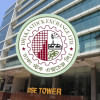Reimagining Bangladesh’s financial ecosystem: bridging the money and capital markets

Bangladesh is facing a convergence of economic challenges, including a persistent foreign exchange crisis, a liquidity-strapped banking sector, and an underperforming capital market.
Daily trading volumes at the Dhaka Stock Exchange (DSE) have plummeted from Tk 2,500-3,000 crore just a few years ago to a mere Tk 300-400 crore today—a stark indicator of dwindling investor confidence.
At the same time, the banking sector remains burdened with long-term corporate loans, further tightening liquidity and limiting banks' ability to lend effectively.
While recent government measures have sought to stabilise the banking sector and money market, the capital market—an essential pillar of economic growth—has been largely overlooked.
To address these pressing challenges, Bangladesh needs a bold and innovative approach that bridges the gap between the money and capital markets.
By monetising large infrastructure projects and gradually shifting long-term loans from banks to the capital market, the country can create a resilient financial ecosystem.
This transition, however, requires not just innovative financial products but also supportive policy reforms and tax incentives.
The monetisation of large-scale infrastructure projects such as the Padma Bridge, Metro Rail, Rooppur Nuclear Power Plant, Jamuna Bridge, and Airport Terminal 3 represents a significant opportunity for Bangladesh.
These projects are not only symbols of national pride but also untapped revenue streams that could be leveraged to create hybrid investment products like REITs (Real Estate Investment Trusts) or ETFs (Exchange-Traded Funds).
For instance, a REIT backed by the Padma Bridge could allocate a portion of its investments to treasury bonds for stability and another portion to revenue-generating assets from toll collections.
Such products could also include a diversified selection of equities, such as DSE30 stocks, to offer investors both stability and growth potential.
Foreign companies operating in Bangladesh, including airlines, banks, and telcos, often struggle to repatriate profits due to forex constraints.
This situation presents an opportunity to attract their funds into the local capital market.
By allowing these companies to invest their profits into infrastructure-backed financial products with a minimum holding period of three years, the government can ease immediate pressure on forex reserves.
If these investments are incentivized through tax exemptions on capital gains, dividends, and repatriated profits, they could significantly enhance foreign participation in the market while boosting overall liquidity and investor confidence.
Another critical reform needed is the gradual transition of long-term corporate loans from banks to the capital market.
Currently, banks bear the burden of financing corporate expansion through long-term loans, tying up liquidity and exposing them to significant risks.
A phased approach can help shift these loans to securitized bonds or hybrid ETFs, allowing banks to free up liquidity for short-term lending and stabilize their financial positions.
In the first year, for instance, 10 to 15 percent of these loans could be moved to the capital market, with an additional 10 to 15 percent transitioned in subsequent years.
Over time, this strategy would not only strengthen the banking sector but also deepen and diversify the capital market.
For these measures to succeed, the government must implement policies that encourage participation in these innovative products.
Tax exemptions on interest income and capital gains for a defined period would attract both retail and institutional investors.
Regulatory reforms are also necessary to facilitate the securitisation process and provide a clear framework for hybrid financial products.
Additionally, robust investor protections and market oversight would build trust among local and foreign participants.
The importance of these reforms cannot be overstated. Monetising infrastructure through the capital market offers a sustainable way to fund future development projects while showcasing the market as a platform for national progress.
Retaining foreign company profits through incentivised investment products provides a pragmatic solution to forex challenges without imposing additional strain on reserves.
Simultaneously, transitioning long-term loans to market instruments alleviates pressure on the banking sector and creates new investment opportunities.
Global examples illustrate the potential of such strategies. India's Infrastructure Investment Trusts (InvITs) have successfully monetized assets like roads and power projects, attracting substantial foreign institutional investment.
Similarly, Singapore's REITs have become a cornerstone of its financial market, offering high dividend yields and drawing both local and global investors.
These precedents demonstrate that Bangladesh can leverage its existing assets and create financial products that align with international best practices.
Bangladesh's economic challenges demand urgent and innovative solutions that balance the needs of the money market and the capital market.
The proposed measures offer a comprehensive roadmap to address current issues while paving the way for sustainable growth.
By monetising infrastructure, introducing diversified investment products, and transitioning long-term loans to the capital market, Bangladesh can restore investor confidence, attract foreign participation, and create a resilient financial ecosystem.
The path forward is clear, but it requires decisive action. Policymakers must recognize the interdependence of the money market and the capital market and implement reforms that strengthen both.
With the right policies and a commitment to innovation, Bangladesh can turn its challenges into opportunities and lay the foundation for a stronger, more inclusive economy.
The writer is a former managing director of the Dhaka Stock Exchange.

 For all latest news, follow The Daily Star's Google News channel.
For all latest news, follow The Daily Star's Google News channel. 





Comments